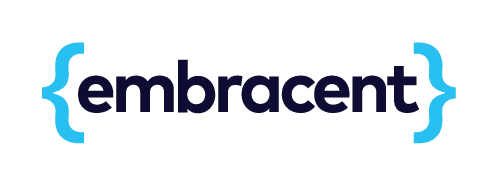We are very pleased to have worked with Ashgate Hospicecare and help automate their monthly reporting process, reducing the monthly processing time from 6 days to under 30 minutes!
Video Transcript:
Hi Matt, thank you for taking the time today. Can you just start by telling us a bit about the hospice and how you’ve been impacted by COVID?
Matt Corbishley (MC) – Director of People and Performance, Ashgate Hospicecare
Sure, so, Ashgate have been around for over 30 years now. We serve the whole population of North Derbyshire. And in any given year, we see up to around 3000 patients. We’ve got 700 volunteers, 350 staff and COVID has presented real challenges, of course, in how we see those those patients, we’ve got an inpatient unit, as well as seeing people in the community. And for me, really what was being brought to the fore is the need to work really efficiently and effectively in a remote way. So that’s been a huge challenge for us in the last few months.
Thanks Matt. Can you tell us why you decided to work with embracent?
MC
Yeah, sure. So we carried out a strategic review of IT last year, and that highlighted the need for quite a lot of DevOps support. So around things like system automation Integration making better use of our data. We have got a great outsourced IT provider, but actually there’s a level of development support that they are not able to offer us. So embracent was the perfect partner for us to work with. And I was aware of their reputation – working globally, particularly with clients in Europe. They’ve got a very impressive track record. So it was really a no brainer for us.
Hi Helen, can you tell us a bit about some of the problems that you were trying to solve with the work embracent have been doing for you?
Helen Cameron (HC) – Audit and Data Analyst, Ashgate Hospicecare
We have a monthly clinical services report that takes about six working days to produce at the moment. We gather information from predominantly one system but there’s a there’s a few additional on the side. But it’s across all the clinical services and it’s a big piece of work. Not a huge amount of data, but lots of intricate little connections going on.
Thanks, Helen. What did they do to help solve the problems?
HC
So we agreed on having two phases of work. And the first was to automate the process using RPA and UiPath. And this was to reduce the time that it takes to extract the information out of those clinical systems and drop them into an Excel sheet that we have.
And was there anything else that the team worked on?
HC
Actually, the second part of the work was to create a visualisation piece so that the data that’s dropped into the Excel file is then more easily accessible to the service teams that need to see it.
And did you get the desired results?
HC
We’re on the cusp of going live. I’ve seen the automation and process is very, very impressive, and now reduces that working load down from six days for one member of our team to under 30 minutes. It’s extraordinary!
And what were the embracent team like to work with?
HC
The embracent team have been wonderful to work with. We’ve been a team of three on our side, and a team of three on the embracent side. We’ve met remotely since May almost weekly with two RPA developers on the embracent side and a Project Manager. The liaison and communication has been fantastic. Problems have been raised early on both sides, and thus able to be resolved.
We’ve gone through all the information governance requirements that we needed to ensure that the data that we hold and is secure with our servers. embracent have been clear with us about the scope of the project. So we’ve not been finding it challenging to understand where we sit and where it’s going to end.
And particularly important to us was the degree of support that we’ll be assured of afterwards. First of all, that when we go live, that we’ll see that deployments complete, and we’ll be safe with that, that we’re not going to be left unsupported and unable to manage a system that we couldn’t of developed on our own.
What advice would you pass on to others with similar challenges to yourselves?
MC
So we’ve been in a position I think, where we’ve probably made assumptions In the past about what is and isn’t possible. Some of the work we’re embarking on now has probably been in the too difficult box. Working with embracent has been a real lesson, I think in the art of the possible. Things that we thought would be just unachievable or just far too complex have been proven to be really easy when you’re working with people who’ve got the know how and the right skills, so I wouldn’t hesitate in recommending embracent to work with.
